-
CATEGORY ::
- All Seeds /
- All Grass Seed /
- All Bermuda Grass Seed
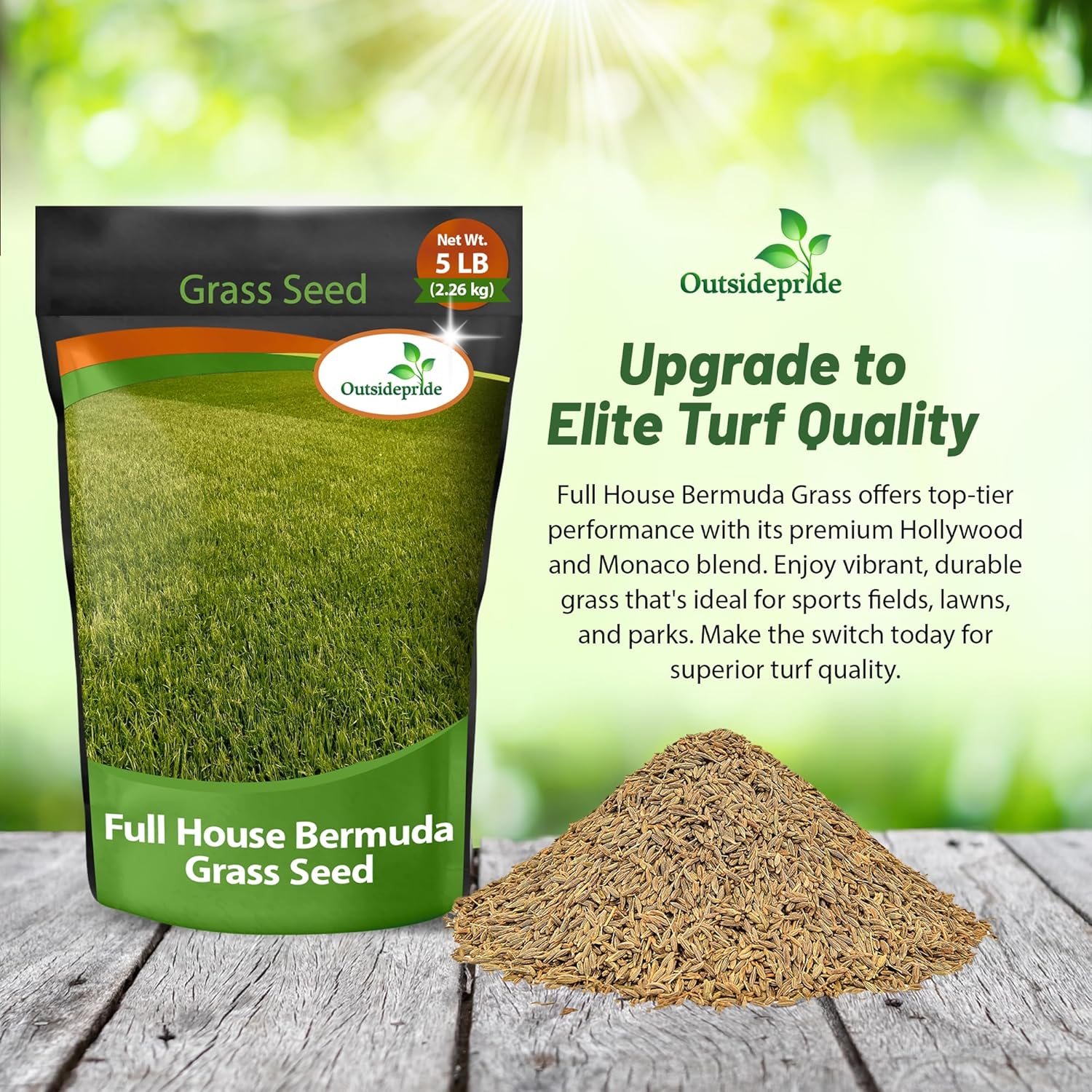

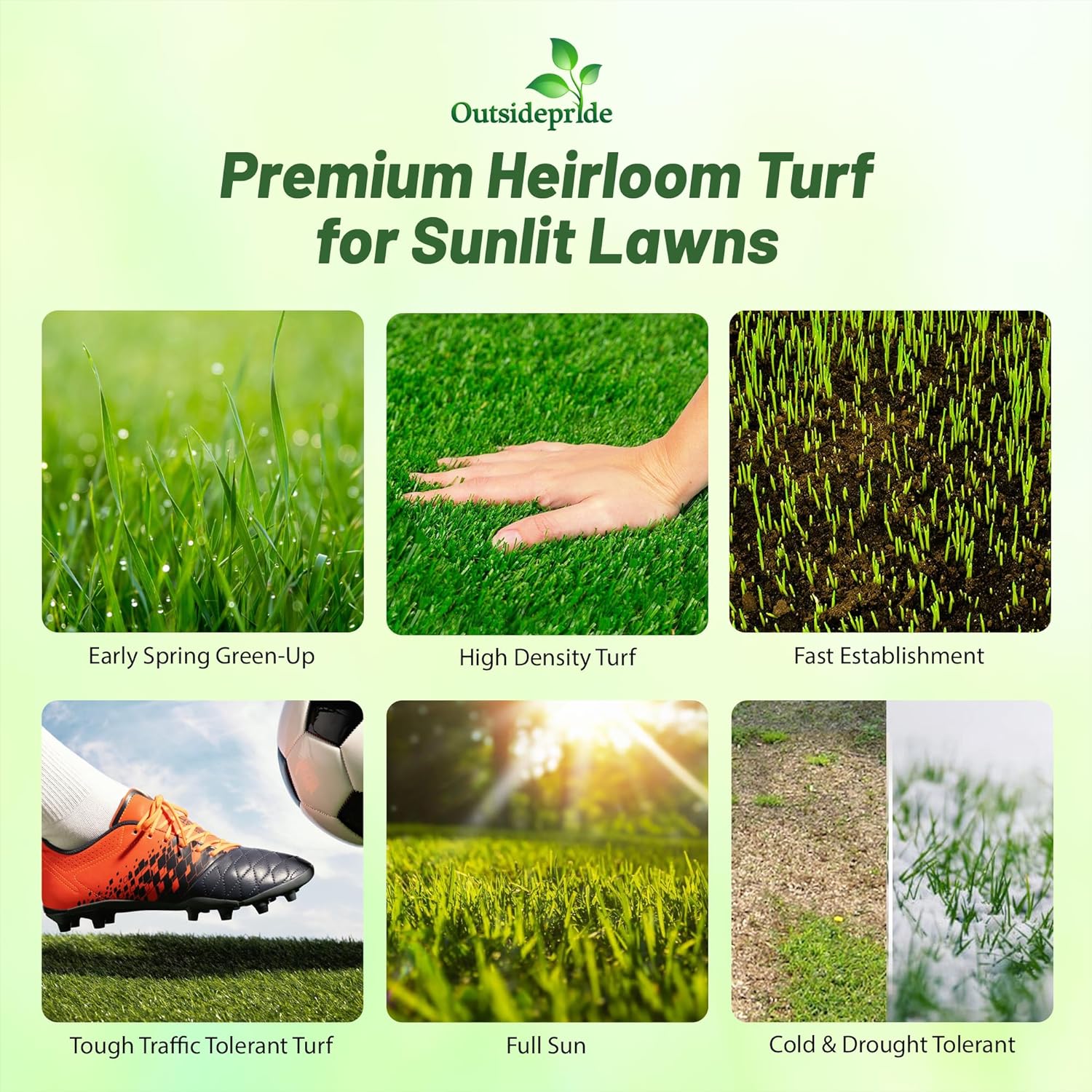
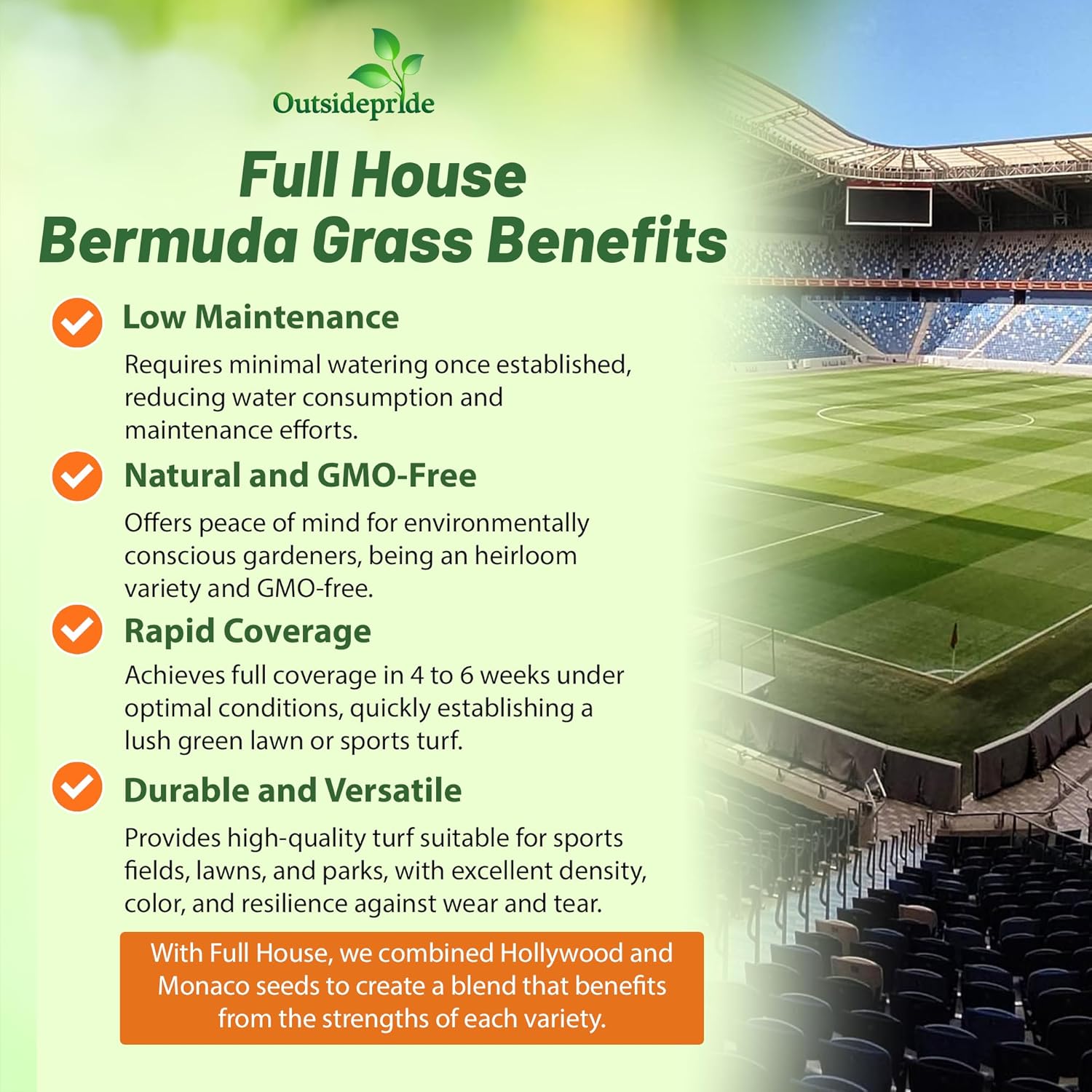
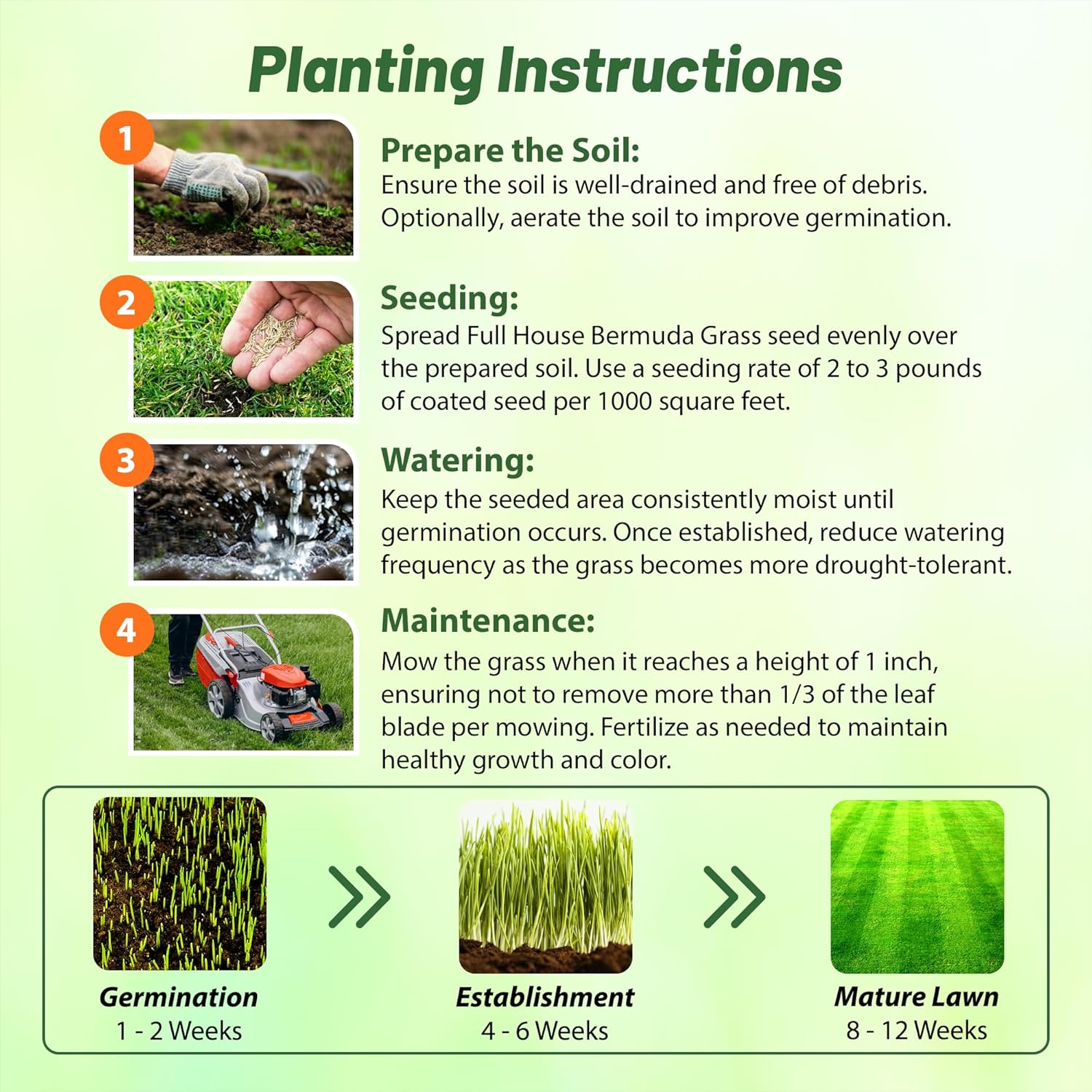
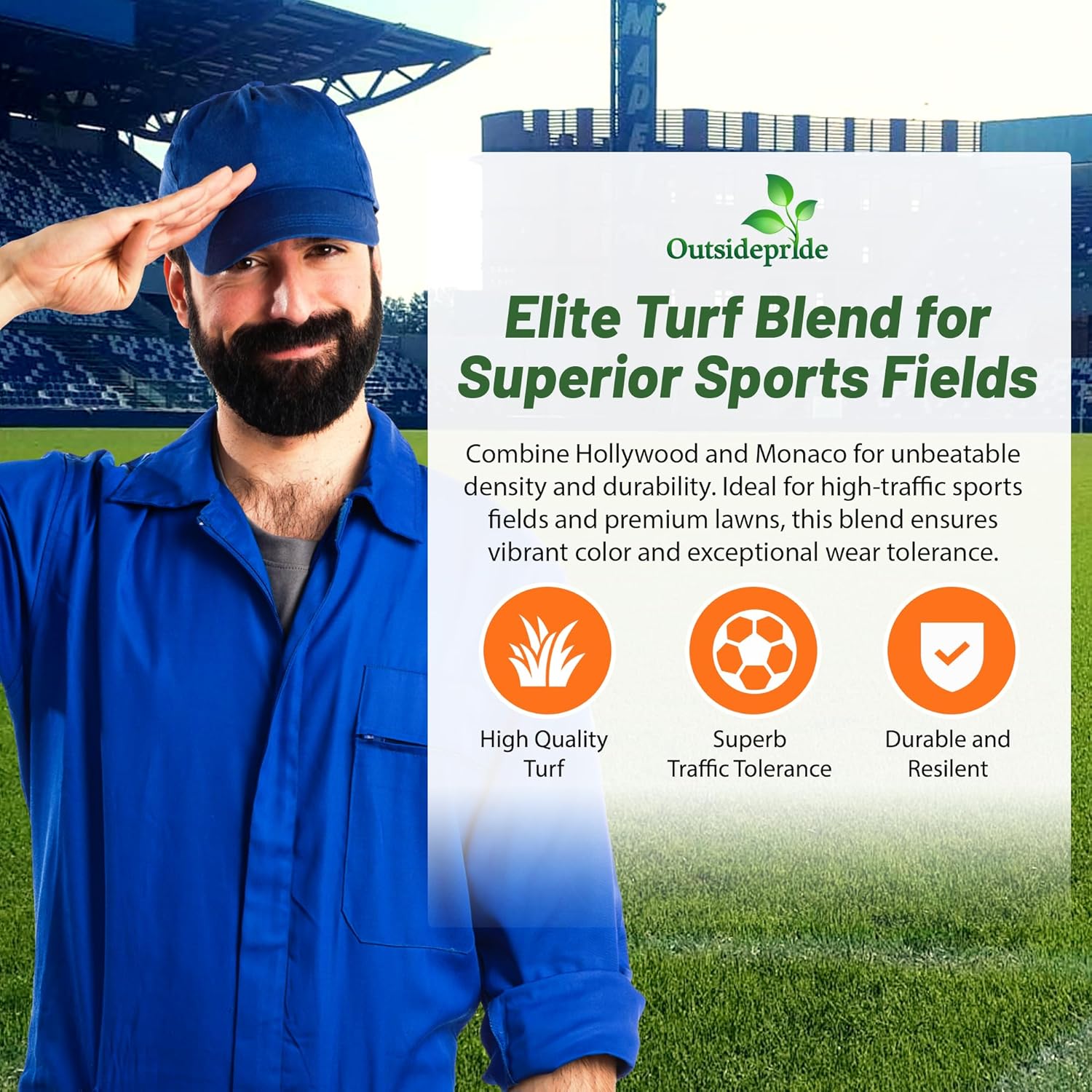
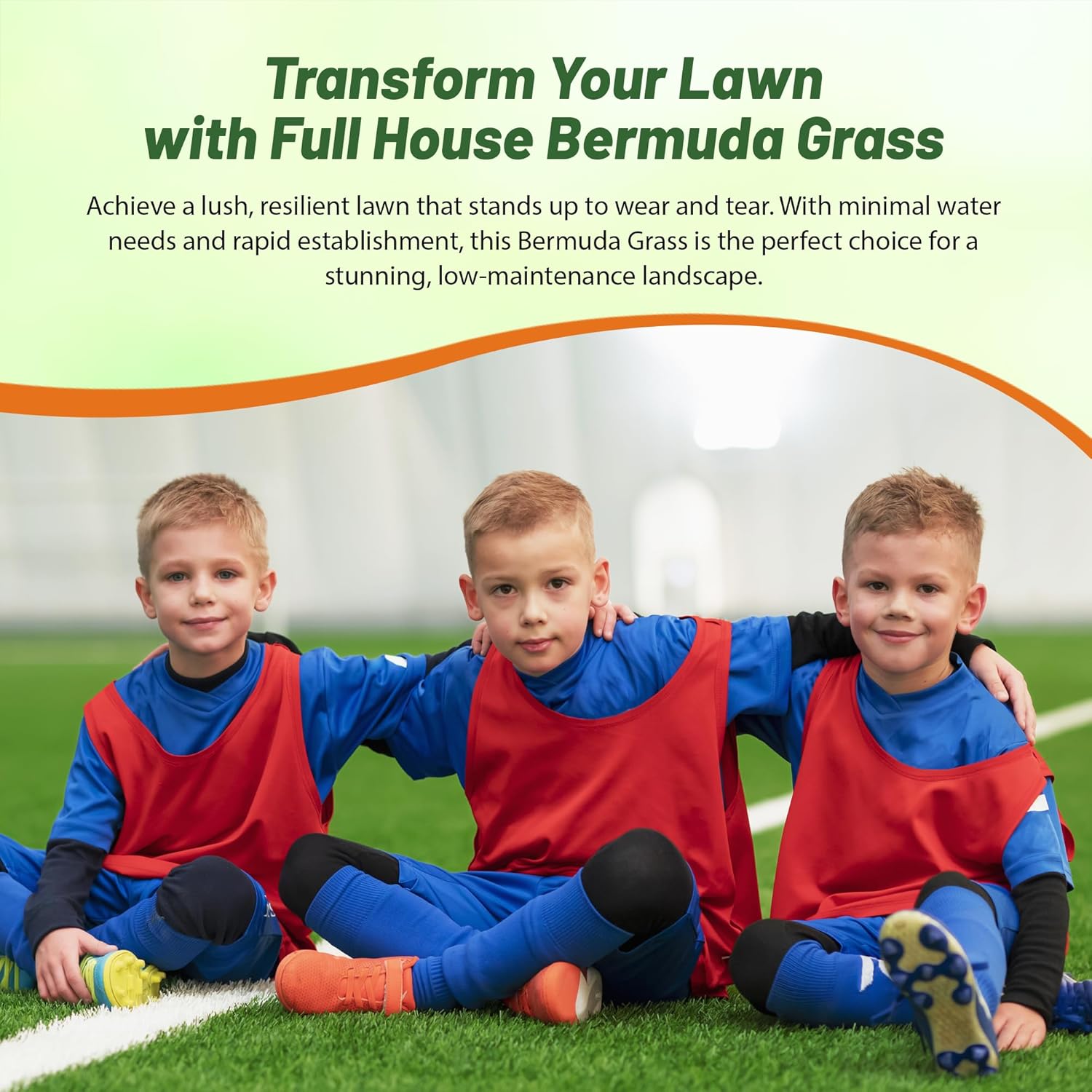




Full House Bermuda Grass Seed Blend
About...
This bermuda grass blend is two of the leading warm season bermuda grasses on the market: Hollywood and Monaco which are both drought tolerant. The perfect blend for warm season areas in full sun. This blend is coated for faster establishment, easier spreading, and better viability. Best in full sun in USDA zones 7 - 10.MORE BERMUDA GRASS OPTIONS


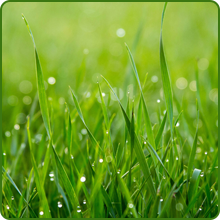
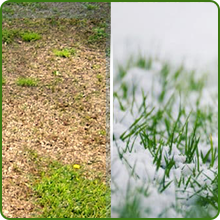



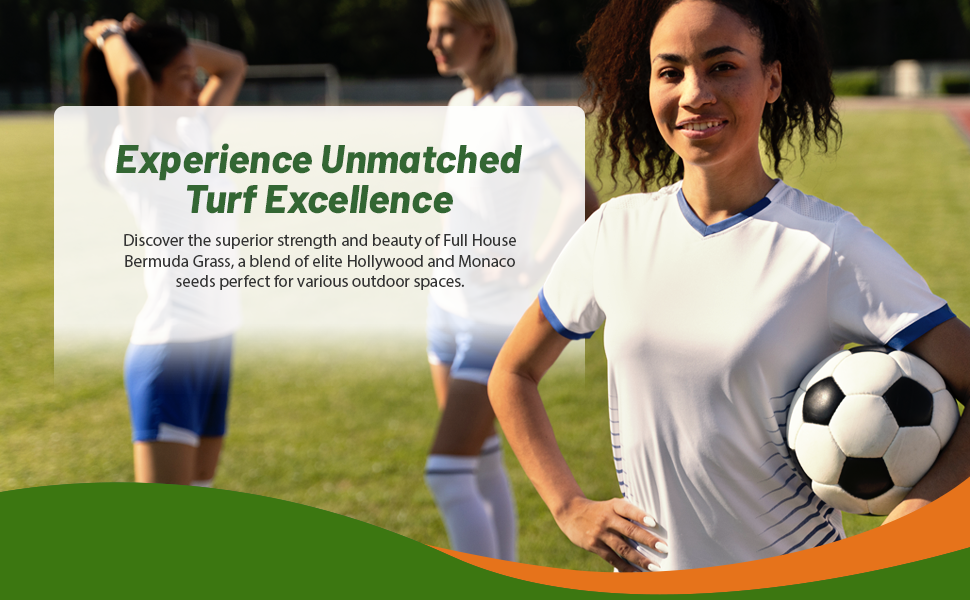
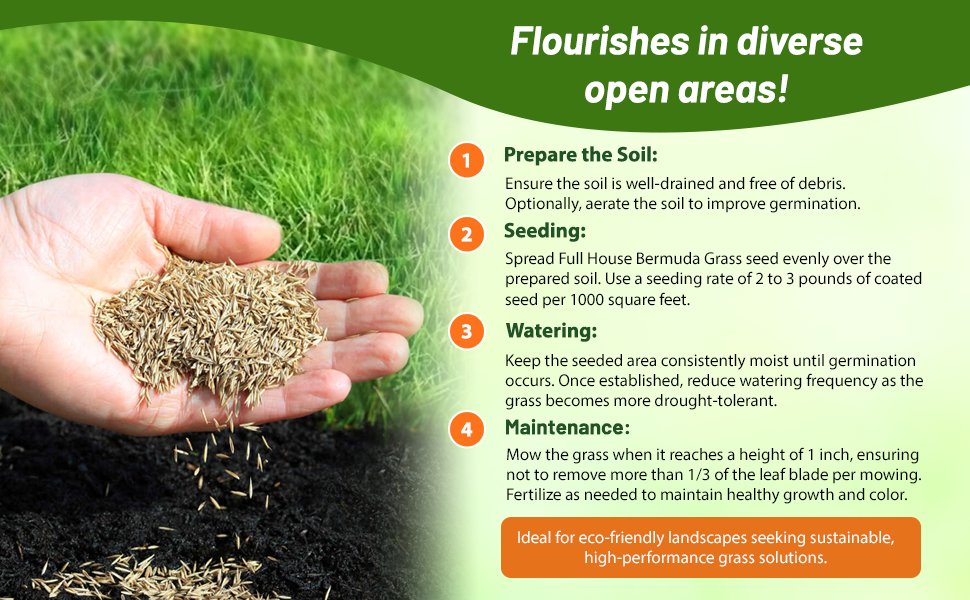
Hollywood and Monaco create a winning combination in Full House bermudagrass. Hollywood and Monaco were top performing varieties in overall quality, traffic tolerance, and color in their respective NTEP trials (2007 and 2013). With Full House we combined two elite seeded varieties – Hollywood and Monaco – to create a blend that benefits from the strengths of each variety. These varieties are similar in color, texture, and quality, but each was developed from diverse parental lines. This diversity provides a winning combination of characteristics in overall turf quality, density, genetic color, fall color, winter color, spring greenup, leaf texture, establishment, drought tolerance and disease.
Applications: Full House’s texture and dark color strongly resembles the elite vegetative bermudas. For most applications, Full House can be established by seed in place of more costly and time-consuming vegetative varieties. Use this elite blend for golf courses (fairways, tees, and roughs), lawns, parks, business landscapes, and sports areas in warm, humid, and semiarid regions, including areas of the Transition Zone. Full House is not recommended for putting greens.
Establishment: Full House rates highly for percent establishment, but extra care should be taken during the first year for complete establishment and competition against weeds. For best results, plant in areas of full sunlight when soil temperatures reach 65ËšF or greater. Cover seed with no more than 1/4" of soil. Maintain adequate soil moisture around seed using frequent but light irrigation. During the grow-in phase, it is recommended to apply 0.5lbs. Nitrogen per 1000 sq. ft. every two weeks with the first application made 2 weeks after emergence. Continue this schedule for 60-90 days then apply 0.75-1.5lbs. Nitrogen per 1000 sq. ft. each month of the growing season. The management intensity level will determine the amount of nitrogen required monthly. Sports turf installations should use the higher rate while residential lawns may prefer to use the lower rate. It should also be noted that in fall, when Full House is preparing for dormancy, it is recommended to apply additional amounts of potassium while significantly reducing nitrogen.
Why A Full House Bermuda Grass Blend
Planting Bermuda Grass
Soil Temperature - Plant when average soil temperatures are above 65 degrees.
Time Before Frost - Plant when you can ensure there will not be a frost in the next 6 weeks
Soil Preparation:
Soil Aeration - Use either manual or chemical means to aerate soil and improve germination. This replaces mechanical aeration and adds beneficial microbes to the soil.
Raking - Rake the area to remove any debris that would prevent the seed from contacting soil.
Water Requirements:
Germination - Keeps seeds moist until germination and then reduce watering frequency and increase watering duration.
After Establishment - Water 1 inch on a weekly basis to retain its color during summer; however, this much water is not needed for survival as it is quite resistant to drought.
Bermuda Grass Usage
Golf course fairways and tees, manicured home lawns and well maintained areas of sports turf and parks.
- Bermuda Grass Seeding Rate: 2 - 3 pounds of coated seed per 1000 square feet of certified seed, hulled, coated form. Coated seeds are easier to spread and retain moisture better which improves germination.
- Time to Plant: Plant Bermuda Grass seed when soil temperatures are consistently above 65° F
- Where to Plant: In full sun on well drained soil. Proper drainage is essential for successful establishment and the development of a mature, healthy putting green.
- Planting Method: Do not cover the bermuda seed with too much soil - no more than 1/16 inch.
- Water: Soil moisture for this putting green seed must be maintained for about 1-2 weeks or until germination.
- Days to Germinate: After planting Full House bermuda seed, with ideal conditions, germination may begin within 7 days. Allow 10 to 14 days for completion for bermudagrass seed.
- Establishment Time: Under ideal conditions, full coverage may be attained between 4 to 6 weeks. If planting the putting green seed occurs early or late in the season, more time may be needed for establishment.
- First Mowing: When grass is 1 inch tall. It is recommended that no more than 1/3 of the leaf blade be removed per mowing.
- Mower/Mowing Height/Frequency: Best if mowed between 0.5 and 1 inch and can be mowed clear down to 0.25 inches. Mow at higher heights for general purpose home lawns (1.25 up to 2 inches) - Rotary mowers are fine for heights above 1.25 inches. Most home / commercial lawns are best maintained at 1.5 to 2.0 inches for a good overall look. Rotary mowers can usually be used at heights above 1.5 inches.
- Winter Over-seeding: May be done for year round green color, but not generally recommended on Bermudagrass less than 6 to 8 months of age. Immature turf may be damaged by the verticutting and scalping procedures, leaving it unable to compete with the over-seeded species during the spring transition.
- Maintenance: This hybrid is dense. Periodic verticutting may be required under high maintenance conditions.
Yellow Jacket Enhanced Seed Coating
Monaco is coated with Yellow Jacket Enhanced Seed Coating. Yellow Jacket is like having a sponge around each and every seed. Once water is applied, the coating holds that moisture and other nutrients around the seed - making them available as needed for germination and establishment. Without coating, the water simply passes the seed allowing it to dry out, resulting in more frequent watering and increased expense.
Featuring a starch-based super-absorbent capable of holding up to 600 times its own weight in water, University of New Mexico trials demonstrate Yellow Jacket enhanced seed establishes faster than raw seed and requires less water. Faster, stronger turf establishment provides superior natural competition to weeds and disease. This results in improved turf quality, reduced establishment costs and faster utilization of a newly seeded area.
Certification
The Grass Seed Certification program establishes the genetic purity and germination of varieties, blends, and mixtures. The certification process begins with the proper field history before production and continues through the bagging of a grass seed lot with every step independently verified by Seed Certification personnel. Each bermuda grass seed lot to be certified is sampled by Certification personnel and tested in the state seed laboratory, so the grass seed you buy is the seed that was tested If even one standard in this process failed, the lot is uncertified. You can rest assured that your bermuda grass seed is certified!



























